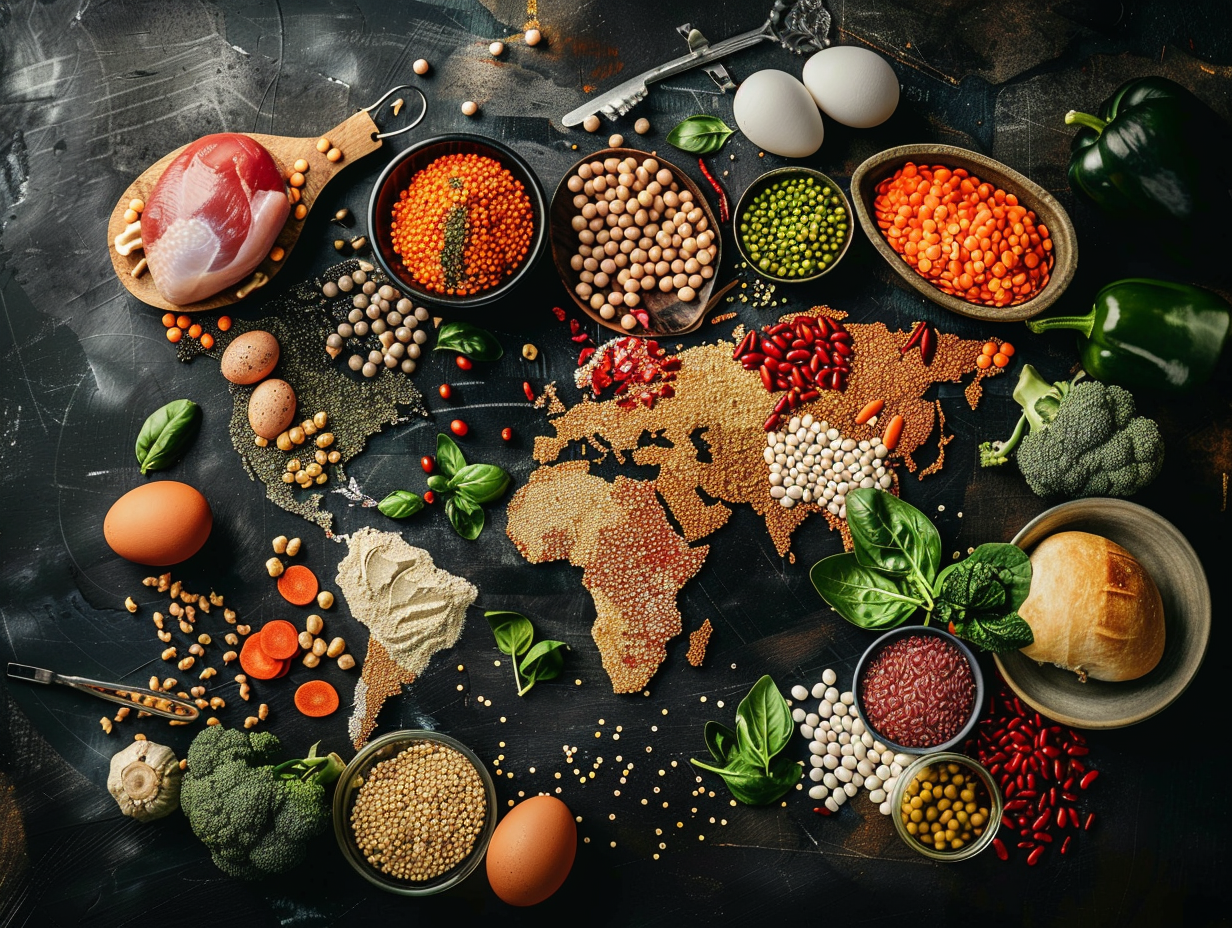Protein is one of the controversial nutrients in the contemporary nutrition. Is it better to concentrate on plant-based products such as beans and lentils or should we remain animal based with meat, dairy products, and eggs? The media has over the years been hearing headlines about how animal protein causes heart diseases and premature human deaths whilst glorifying plant protein as being the healthier.
A recent global study published in the year 2025 by Nutrients however disputes this story. Scientists discovered that common animal and plant protein consumptions are not negatively related to all cause mortality in other words, neither of the two types of protein can lead to early death.
This discovery might change our perception of protein and longevity.
The Study at a Glance
The study conducted by Victor L. Fulgoni III, and others, assessed nutrition information of 14 countries across the five continents. It compiled findings of huge national health surveys, such as:
NHANES (United States)
Canadian Community Health Survey.
National Diet and Nutrition Survey, UK.
Surveys of China Health and Nutrition.
Australian Health Survey
Altogether, the researchers examined hundreds of thousands of adults who were monitored to determine the average amount of protein they consumed and analyzed how many of them died.
Key Findings
No Higher Risk of Intake of Protein.
However, contrary to the previous research that implied harmfulness, the study found no significant correlation between customary consumption of both animal and plant protein and the all causes mortality. Those who consumed more protein (either vegetarian or animal) did not die earlier than those who consumed less.
Contribution by The Two Sides.
Two-thirds of dietary protein was on average animal based, one-third was vegetal. This balance was prevailing in a majority of the countries that underwent the study despite the differences in culture and regions.
It is the Quality of Protein that Counts.
The research indicates that there was no significant difference in the risk of mortality, but the quality of protein, in terms of essential amino acids content, is still critical to muscle health and immunity as well as ageing. Animal proteins do tend to have more complete amino acid profiles whereas plant proteins do give beneficial fiber and phytonutrients.
Sustained in Age and Sex.
The absence of negative effects was true among men, women, young men and women. The risk of more mortality was not higher among older adults who were eating larger amounts of animal protein than their counterparts.
Why This Matters
Over the decades, dietary recommendations and media have taught the dangers of consuming too much red meat or too much animal protein. Although still being associated with some diseases, the study offers some relief to the fact that average daily, everyday protein intake, be it animal or vegetable, does not have an adverse effect on life-span.
Rather, what is more important could be:
Total diet quality (e.g. whole food balance, fiber, vitamins and minerals).
Lifestyle (exercise, sleep, stress, and smoking).
Protein source variety in order to address the essential amino acids and micronutrients.
Practical Takeaways
Fear of animal protein is not something that you should have. Healthy diet may include eggs, dairy, poultry and lean meat.
Plants remain of paramount importance. Legumes such as beans, lentils, nuts and soy contain protein, fiber and antioxidants.
Mix and match. This will make a nutrient-dense profile think chicken with quinoa, or lentils with yogurt.
Target on quality, not quantity. Meats and fried food products are highly processed and thus pose risks that extend beyond the protein.

What About Earlier Studies?
According to the previous studies, the substitution of animal protein with plant protein reduced the risk of chronic disease. A lot of those studies, however, targeted certain subgroups or did not adequately control confounding factors such as smoking, obesity and socioeconomic status.
This fresh collective study of varied world groups gives better grounds to believe that the protein source per se might not be as bad as it was previously assumed. Rather, it is the wider way of life and nutrition that is important.
Future Research Directions
The authors mention that further research is required to:
Compare certain high protein foods (examples: red meat vs dairy vs legumes).
Investigate the relationship between protein consumption and the chronic disease outcomes such as diabetes or cardiovascular disease.
Research the influence of protein type on healthy aging, muscle preservation, and frailty among elderly people.
Conclusion
This pioneering work is the hope that meat-lovers and vegetarians can rejoice in alike: protein, whether meat or vegetable does not make your life any shorter.
We need to stop worrying about animal vs plant protein, and instead eat a balanced diverse diet, one that is abundant in whole foods and supplemented by healthy lifestyle choices.
Then have it have that grilled salmon or tofu stir fry or curry made of chickpeas. The food you consume is less about life span and more about how strong, resilient and well you feel.
Reference
Papanikolaou Y, Fulgoni VL III, Uzhova I, et al. Animal and plant protein: Usual intakes are not adversely associated with all-cause mortality in 14 countries. Nutrients. 2025;17(3):885.

